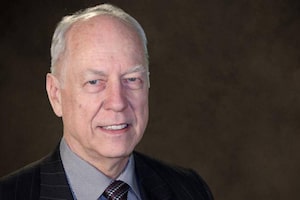Paul Heinbecker, a former ambassador to the UN, is with the Centre for International Governance Innovation, the Balsillie School and Laurier University in Waterloo
The United Kingdom's Iraq Inquiry report reminds us once again of the folly of the Iraq war and the importance of leadership. The report explodes whatever residual justification that former Prime Minister Tony Blair and his acolytes have clung to since making themselves the all too willing accomplices of the illegal U.S. invasion of Iraq in 2003.
The report also reminds us of the conflict that took at least 150,000 Iraqi lives and displaced a million more, destabilizing the Middle East with the results seen today from Bagdad and Aleppo to Dhaka, Istanbul, Paris, Brussels and Orlando. It should also prompt us to contemplate what we ourselves can learn from this inquiry.
A first lesson for Canada is that foreign policy decisions, especially those involving peace and war, must be guided by values as well as interests. The report makes it clear the essential purpose of the British government going into that war in Iraq was to maintain its privileged relationship with Washington. The British went along to get along. According to the chairman of the inquiry, Sir John Chilcot, Mr. Blair wrote to President George W. Bush in July 2002 with an assurance that he would be with him "whatever."
The British deluded themselves that, in a partnership, they would be able to influence Washington's decisions. Mr. Chilcot's report has made it clear that, not surprisingly, the opposite happened. As Canada's Ambassador to the UN at that time, I witnessed the British play stalking horse for U.S. policy – not for the first time – and turn their own legal case on its head to align itself with Washington and justify the war. Nor, when war came, did U.K. efforts have much impact on U.S. behaviour, notably on the U.S. decision to disband the Iraq army, which lead to the creation of Islamic State.
A second lesson Canada should draw from the report is to be wary of group-think and overly confident intelligence services. According to Chilcot, "there was an ingrained belief in the U.K. policy and intelligence communities that Iraq had retained some chemical and biological capabilities; that it was determined to preserve and if possible enhance them – and, in the future, to acquire a nuclear capability; and that it was able to conceal its activities from the UN inspectors."
These beliefs were shared by much, though not all, of the U.S. intelligence establishment as well. The case for Iraq's having weapons of mass destruction was, in the notorious and indelible words of former CIA director George Tenet, a "slam dunk." U.S. Vice-President Dick Cheney said Saddam Hussein's Iraq had reconstituted its nuclear weapons. Secretary of State Colin Powell insisted to the UN Security Council that what he was presenting them were "not assertions. [They were] facts, corroborated by many sources, some of them sources of the intelligence services of other countries."
None of these claims about Iraq turned out to be true.
As one Arab ambassador to the UN warned at the time that, in attacking Iraq, the Americans, U.K. and allies had swallowed a razor blade that would be bloody, painful and costly to extract. Another Arab said that while the war would be won in six weeks, the crisis it would cause would last 60 years, and the Arab memory of it will last centuries.
A third lesson we should draw from the Iraq Inquiry report is the importance of the role of the UN Security Council. According to Mr. Chilcot, "most members of the Security Council could not be convinced that peaceful options to disarm Iraq had been exhausted and that military action was therefore justified."
I had made precisely the same observation to Ottawa at the time. In March 2003, there was no imminent threat from Saddam Hussein, a strategy of containment could have worked and UN inspections and monitoring could have continued. And if the U.S. and U.K. had endorsed rather than opposed a compromise along these lines, the Middle East would likely be a very different place than it is today.
A fourth lesson is that, with the Chilcot report on Iraq, the Butler Review of Intelligence on Weapons of Mass Destruction and other reviews, the British have manifested an appetite for accountability that is probably unmatched elsewhere. We are still awaiting the U.S. inquiry into its hell-bent march to war in Iraq, which has been the worst U.S. foreign policy mistake since Vietnam, and, in terms of lasting negative, metastatic effects, probably its worst ever.
A fifth lesson for Canada is that, especially on crucial foreign-policy decisions, it is never true that we have no choice but to support our allies. We always have a choice, if we are willing to pay the cost required by our values. And as it happened, those costs in the case of the Iraq war were entirely bearable.
Canadian politicians and officials faced a tough situation and made the right judgments for the right reasons. Both Jean Chrétien and Tony Blair described their decisions on the Iraq war as the most difficult they had to make in office. Mr. Blair made the wrong decision; Mr. Chretien made the right one. Rarely in public life has sound policy been so quickly and so totally vindicated.
 Paul Heinbecker
Paul Heinbecker